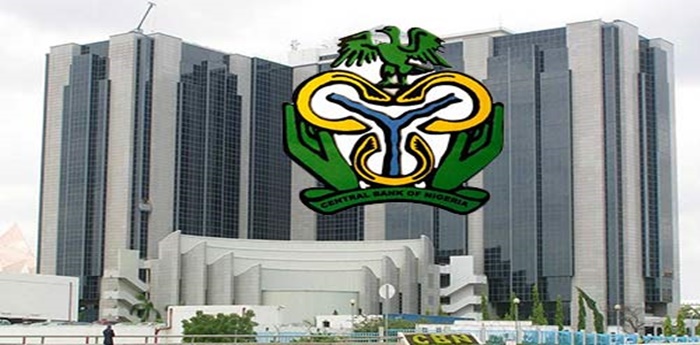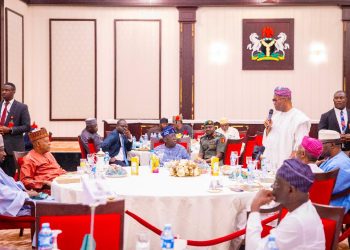By Lawal Nasir
In a keynote address at the launching of the Nigeria Economic Summit Group 2025 Macaroeconomic Outlook in January this year, the Central Bank of Nigeria (CBN) Governor Olayemi Cardoso projected that the Nigerian economy will grow by 4.1 per cent while inflation will decline, with continued increase in foreign exchange inflow into the country.
“Estimates of key economic indicators suggest a positive outlook for 2025 in particular; GDP growth is projected to rise to 4.17% in 2025 from 3.36% in 2024,” Cardoso had said, adding that “This growth is anchored on sustained implementation of government reforms, stable crude oil prices and improvements in domestic oil production, increased refining capacity…”
Developments in the Nigerian economy are now validating the projections by the apex bank governor.
*Nigeria’s NFER hits three-year high
Earlier this month, the CBN has reported a substantial improvement in its Net Foreign Exchange Reserve (NFER) position as of the end of 2024, a reflection of a substantial improvement in the country’s external liquidity, reduced short-term obligations, and renewed investor confidence.
It disclosed that NFER [which adjusts gross reserves to account for near-term liabilities such as FX swaps and forward contracts, is widely regarded as a more accurate indicator of the foreign exchange buffers available to meet immediate external obligations] stood at $23.11 billion, the highest level in over three years, a marked increase from $3.99 billion at year-end 2023, $8.19 billion in 2022, and $14.59 billion in 2021.
Economic experts have made repeated calls for the disclosure of the country’s NFER. A Professor of Capital Market at the Nasarawa State University Keffi, Uche Uwaleke, who is also the President of the Capital Market Academics of Nigeria, said the $23bn net foreign exhange reserve will positively impact on the value of the Naira and put the CBN in a stronger position to defend the Nigerian currency.
*External reserves increased to $40.19bn
In addition to the NFER feat, Nigeria’s Gross External Reserves also increased to $40.19 billion, compared to $33.22 billion at the close of 2023, reflecting a combination of strategic measures undertaken by the CBN, including a deliberate and substantial reduction in short-term foreign exchange liabilities – notably swaps and forward obligations.
As the CBN helmsman noted, “This improvement in our net reserves is not accidental; it is the outcome of deliberate policy choices aimed at rebuilding confidence, reducing vulnerabilities, and laying the foundation for long-term stability… We remain focused on sustaining this progress through transparency, discipline, and market-driven reforms.”
Indeed, only recently, the CBN supplied a total of $197.71 million dollars to the foreign exchange market through sales to authourised dealers as part of its ongoing commitment to ensuring adequate liquidity and supporting orderly market functioning. The move, as the apex bank’s Director of Financial Markets Department, Dr. Omolara Duke explained, reflects the CBN’s broader objective of fostering a stable, transparent, and efficient foreign exchange market.
*$6.83bn balance of payments surplus
A week after the NFER success, the CBN announced a Balance of Payments (BOP) surplus of $6.83 billion for the 2024 financial year, marking a decisive and significant turnaround from deficits of $3.34 billion in 2023 and $3.32 billion in 2022. Mr Cardoso attributed the feat to the effectiveness of the ongoing economic reform agenda, which is anchored on “boosting of oil and gas production, fuel subsidy removal and free-floating of the naira.”
As economists explain, when N150 entered the country and N100 exited over a period of time, the said country would have recorded a surplus of N50 during the time under review. This surplus can be used as a catalyst for higher savings and investments, thereby boosting opportunities for economic growth.
Even the Social Democratic Party (SDP), through its National Publicity Secretary, Araba Rufus Aiyenigba, applauded the balance of payment surplus report by the CBN, adding that, “We need to make Nigeria market more attractive to foreign investors by implementing policies that enable inflow of investment and the ambience that engenders retainment of investment in the country.”
The 2024 balance of payment surplus, like the apex bank explained, highlights the effectiveness of Nigeria’s ongoing reform agenda, which include the liberalisation and unification of the foreign exchange market, a disciplined monetary policy approach to managing inflation and stabilising the naira, and coordinated fiscal and monetary measures. It also reflects the impact of wide-ranging macroeconomic reforms, stronger trade performance, and renewed investor confidence in Nigeria’s economy.
*Nasir is a journalist based in Abuja









